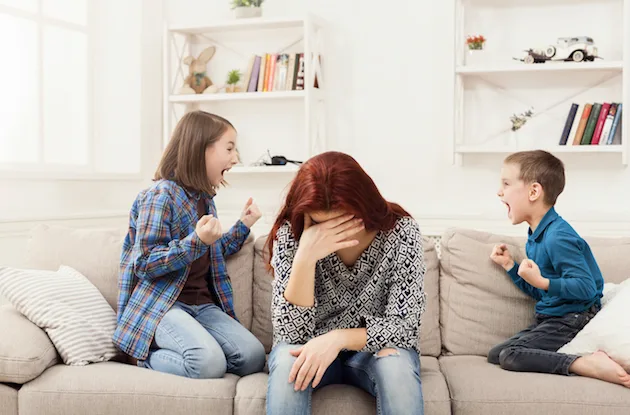We've all had our fair share puppy love, but what should we do when our kids tell us they like someone? Local experts share what you need to know to handle your child's first crush.
After this public proclamation, Victoria agreed to be his girlfriend again. I worked with her parents to set up lunches, movies, and playdates—until they broke up again, of course. Before I could blink there were others that caught his eye and captured his heart.
There is a great innocence and excitement in that first love. It gives parents cute stories to share and kids a chance to learn about feeling a special connection to another. “Young children have experienced crushes for a long, long time. It is not a new phenomena,” says Gail Saltz, M.D., an associate professor of psychiatry at The New York Presbyterian Hospital Weill-Cornel School of Medicine in Manhattan. “But a young child’s experience of ‘love’ is not the same as an adolescent or adult.”
First loves for kids younger than 11 are usually innocent but parents may be shocked. That’s what happened to Queens mom Julie Schwietert Collazo when her 6-year-old daughter announced to a family friend that she had a boyfriend. “I was stunned, not just because she told our friend rather than her dad or me, but because, well, a boyfriend!” she says. “How did my baby grow so fast?”
She found love notes. One professed “I love you” and the other was a drawing of a boy and girl that read: She likes that boy. He likes that girl. After a little mom reconnaissance, Schwietert Collazo discovered her little one liked a nice boy at school. When she asked her daughter about the note, the 6-year-old ripped it up and told mom she wasn’t supposed to find it, so Schwietert Collazo is trying to give her the space to reveal this at her own pace—while keeping an eye on things.
Here’s some advice from the experts on how to handle first loves and crushes.
RELATED: Teach Your Kids to Manage Valentine's Day Expectations
First Loves and Crushes for Kids Ages 4-11
First crushes are not really “romantic.” Keep young crushes in perspective—and don’t equate them with romantic love. “The stories of young love are more about strong connection in a sibling friendship way,” says Darby Fox, MSW, a New York City child and adolescent family therapist. “Young love is not romantic love. Romantic love is really later on although kids might describe their feelings that way. Real feelings of love are more for 12-year-olds.”
Love is all about attachment. The way children experience attachment has everything to do with the kind of nurturance and support received from caregivers. “Attachment is a powerful connection that has physical and emotional bonds,” says psychologist Deborah Serani, Psy.D., a professor at Adelphi University in Garden City. “They go from mom or dad and move toward sister, brother, grandparents, aunts, and uncles—and others in their circle of life. Attachment to others may be mild, or even casual. But then there are those that stir emotions and physical feelings that make the child brim with adoration. So when a child pronounces love for another, it’s really about the powerful connection that’s rooted in attachment.”
Children mimic the world around them. It’s natural for kids to pick up their cues from others in their home, and from media and culture. “Children grow up seeing how their parents and other couples act, as well as watching hours of cartoons, movies, and even regular programming that demonstrates how a loved one is cherished,” Dr. Serani says. “So kissing, holding hands, professing love aloud, or making or giving gifts is part of the attachment celebration.”
Let it play out. While you want to monitor blossoming affections, you don’t want to stifle it or make your child uneasy. “These are lessons the kids need to learn for themselves, in terms of the relationships and experiences they have,” says Jane Greer, Ph.D., a New York-based relationship expert and author of What About Me? Stop Selfishness from Ruining Your Relationship. “There’s no need to intervene, unless your son or daughter is involved with someone who’s lying, cheating, stealing, etc. If they are a bad influence, that’s when parents can get involved.”
It’s okay to encourage your child. Parents may be reluctant, but it’s healthy to support children in feeling a connection to others and at the same time teach them to be discerning. “If they like this person, there must be attractive characteristics about them,” Dr. Greer says. “Help them learn to evaluate others and show them what qualities they should look for in another person.”
Never make fun of young love or crushes. Older kids or unthinking adults may turn a first crush into a big joke and make light of it. This will make a child feel humiliated and belittled, Dr. Greer says. “You want them to feel secure and confident in their choices of friends and crushes,” she says. “If you have concerns, raise them in a thoughtful and respectful way that enhances their self-esteem and helps them feel good about their choices.”
RELATED: 14 Ways to Celebrate Valentine's Day with Your Kids
Dealing with the Sad Side of First Love
Rejection is painful and real. No matter your age, it can sting. “Learning how to cope with hurt is part of growing up,” Dr. Saltz says. “But it is part of the human experience and not dangerous unless done in a particularly cruel or abusive way. Parents need to teach kids how to end a relationship with empathy and kindness.” Set limits on cruel behavior if your child is the one ending the relationship, she says.
Sometimes it is a crushing experience. Some kids find their interest and affection goes completely ignored. “A crush can have healthy boundaries or range into the extremes,” Dr. Serani says. “It’s all well and good when a child crushes on another and there’s an unspoken permission that comes with it. Each child enjoys the aspects of the crush. Trouble stirs when the adoration isn’t reciprocated by the crushee but is still wanted by the crusher.” A small child will not curl up on a chair and stare hopelessly out of a window, but keep an eye on behavior.
Help your child through disappointments. No one wants their kids to need a couple’s counselor before fourth grade but they may need emotional support. “It can be very difficult because kids have no experience to base their feelings on,” Fox says. “Be sensitive to raw feelings but encourage that it does fade away. If one is more invested than the other it is usually partly infatuation and romantic ideation. Again, discuss it, but redirect your child to interact with peers and regular activities as they sort through the feelings.”
RELATED: Find Valentine's Day Activities Near You
View Affection Through a Different Lens
Teach kids how to show affection. Kisses that demonstrate love and tenderness between family members are not recommended for first loves. “Young children see kisses modelled by parents and other loved ones as signs of affection and a symbol of caring,” says Laura Paret, Ph.D., a child and adolescent psychologist with Union Square Practice in Manhattan. “It follows that these same youngsters might use a little peck on the playground at preschool or at a playdate to mean: ‘I like you!’” She suggests explaining that verbal expression may be the best way to share feelings outside the home because a kiss may be perceived as an invasion of personal space.
When a kiss is a just a kiss. The meaning of a kiss changes as kids age out of the nursery to second grade age groups. “Older children about 8 years old and older have a more abstract understanding of what a kiss means and how it can be used to express romantic intentions, as compared to much younger children who use touch, such as hugs and kisses, more dominantly as their ‘language of love’ than verbal expression toward all others,” Dr. Paret says. Teach older children that touch must be appropriate and welcome between both parties, and let them know ways in which it may be unwelcome.
Keep an eye on things as they develop. Kids need to be supervised, but parents should try to worry less. “Kids don’t really express worries, but parents do,” Fox says. “It is unsettling for parents of young children because they assign sexuality to the relationship that the kids don’t. Best advice is to let the kids play and be friends but watch as they get older that they aren’t playing ‘doctor’ or going into rooms alone. Touching and exploring begins around 10.”
Establish Trust for the Tween and Teenage Years
At some point your little ones will grow, hormones will kick in, and romance and sexuality will be a natural part of their interests. How you handle early crushes can help establish a sense of trust for those tween and teen years, says Jody Ripplinger, MA LMHC-P, a psychotherapist at Manhattan’s Citron Hennessey Private Therapy and a Brooklyn mom of three.
The best strategy is to listen to your children. “If my 10-year-old daughter came to me to say she was in love, I would first of all become really curious about the who, what, when, and where of her experience, especially listening for what ‘being in love’ means to her,” Ripplinger says. She admits her next impulse would be to give advice: “You’re too young to be in love!” This is a completely normal reaction from any parent. But, she says, if you pull back and try to assess what kids really need and honor their feelings, you have a much greater chance of gaining their trust down the line when the stakes are higher.
Main photo: Veron, the Fan Favorite Finalist from our 2015 Cover Contest, shows us how a real gentleman does Valentine’s Day.
PhotoOp NYC
RELATED: Get Weekened Activities Sent to Your Inbox





















